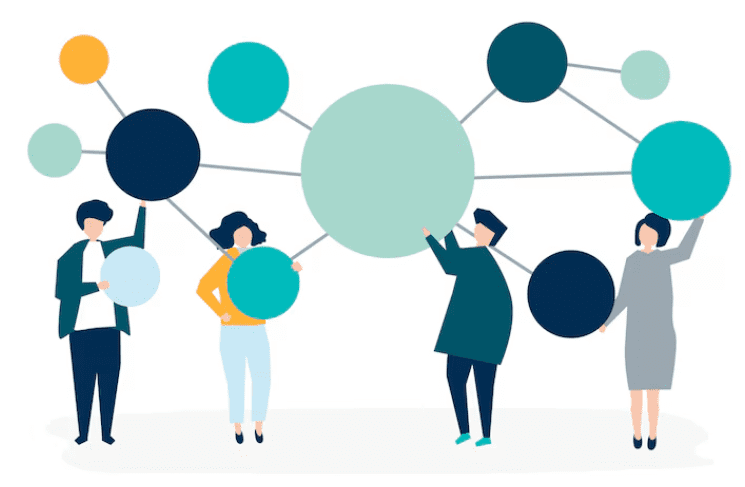Removal of carbon from the atmosphere through carbon credits and Biochar donation The AGCI Umbria, within the actions promoted by the European project OBCD – Open Business for Community Development, in particular in the one concerning the construction and development of the Local Ecosystem, considered it important to involve its Community Cooperatives and other partners belonging to the Local Ecosystem Italy OBCD in the event that was held on Friday 18 October 2024, at the National Fire Prevention Institute in Rome. An important week for the climate in Italy took place from 14 to 19 October, which began in Florence on 14 October with the Biochar School, organised by iChar – the Italian Biochar Association, and culminated in Rome on 18 October with the BiochART exhibition round table, held from 3 to 27 October 2024 at the Istituto Superiore Antincendi and sponsored by the Lazio Region and the Pistoletto Foundation. As far as OBCD’s Ecosistema Italia is concerned, in addition to AGCI Umbria, numerous partners participated in the event: the Community Cooperatives BE VALNERINA and LOCALCARBON ITALIA, the cooperative BASE 3, the Social Promotion Association Roma Open Lab, the Consortium Meuccio Ruini Impresa Sociale, AGCI Nazionale, IT Impresa e Territorio Srl, EFTILIA società benefit and the social cooperatives LA SPERANZA of Terni and ITINERA of Rome. The program of the event, which had a high political and institutional profile, allowed the participating members of Ecosistema Locale Italia to deepen their understanding of the political lines that are being defined, at a European and world level, regarding the burning issue of Carbon Dioxide Removal and the increasingly urgent need to provide all European countries and the entire international community with appropriate legislation on the subject. The importance of the need to alleviate the carbon footprint of anthropogenic activities has been established by international bodies such as the IPCC, Intergovernmental Panel on Climate Change, because it is now clear that we will not be able to stay within the parameters of the 2015 Paris Agreement, and therefore, in addition to reducing emissions, we will have to capture carbon from the atmosphere and store it in the earth. For this reason, the production and use of biochar is a methodology that is rapidly gaining popularity, because through the thermochemical process called pyrolysis, organic carbon from plants is transformed into an inert that remains stable for hundreds or thousands of years in the soil. This process can be applied to all agricultural waste by utilizing process heat also for greenhouses and livestock farms and improving soil fertility. Professor Hamed Sanei from Denmark’s Aarhus University brought new and irrefutable scientific evidence on the stability of Biochar in soil, Prof. Stephen Joseph, PhD, author of 84 studies and 11 books on Biochar, connected from Australia, spoke about the benefits of Biochar to protect soil and crops from drought, and Dr. Ziv Nadav biochemist with a PhD in Neurobiology and CEO of Earth Biochar, connected from Israel, spoke about its use as a carrier to bring probiotic microbes into the soil, useful to protect crops from drought diseases. Ziv Nadav, a biochemist with a PhD in Neurobiology and CEO of Earth Biochar, reporting from Israel, spoke about its use as a carrier to bring probiotic microbes into the soil, which are useful in protecting crops from cryptogamic diseases. The Round Table was organised by Sole 24Ore environmental journalist Rita Salimbeni and officiated by Fire Brigade Commander Ing. Clara Modesto, who took office on 3 October after years of service in Latina. Numerous speeches followed, including one by Prof. Mauro Giorcelli of the Polytechnic University of Turin, who spoke about the multiple uses – agricultural and otherwise – of biochar, and one by Dr. Silvia Scozzafava, environmental scientist and creator of the Italian BlockCO2 platform, who explained why carbon credits from biochar donation are inherently more reliable than other types of credits available. The President of the Community Co-operative Localcarbon Italia, Silvia Sandri, gave a professional and passionate speech; she started from the concept of the Third Paradise by Maestro Michelangelo Olivero Pistoletto, because in the work it starts from the sign of infinity, made of two circles: one circle symbolises the natural world and the other circle symbolises the artificial and technological world. In the Third Paradise, a ‘belly’ is added, a third circle in the centre symbolising the harmonious union of these two worlds. Well, Localcarbon Italia‘s proposal was to use the tool of the Social and Solidarity Economy to achieve this, primarily in the area of carbon removal from the atmosphere, but more broadly in all other areas as well. An appeal was launched to set up a Permanent Round Table to ‘work as a system’, proposing a meeting date, 24 March 2025, in Rome to announce the first results obtained. Silvia Sandri emphasised the close relationship between Localcarbon Italia and the AGCI Cooperative Centre – General Association of Italian Cooperatives, which sponsors and supports the cooperative in its virtuous actions against the increase of companies’ carbon footprint, through training on the Sustainability Report, the promotion of carbon credits and the consequent donation of Biochar to agricultural enterprises, especially cooperatives. The President illustrated their participation in the European project #GRAINS – Greening Agribusiness in the Social Economy, which through AGCI (one of the GRAINS project partners) will receive funding from the European Innovation Council and the Executive Agency for SMEs. This initiative is aimed at Social Economy organisations willing to share their knowledge and experience in order to strengthen Social Economy SMEs in the agri-food sector. The President also illustrated the state of the art of the European project OBCD – OPEN BUSINESS FOR COMMUNITY DEVELOPMENT, describing in particular the actions aimed at setting up the Local Ecosystem Italy, of which the Community Cooperative LOCALCARBON ITALIA is an active part, whose aim is the promotion of social entrepreneurship through the form of confrontation and exchange of ideas, information and initiatives between different actors from the world of business, universities, social promotion associations, public










